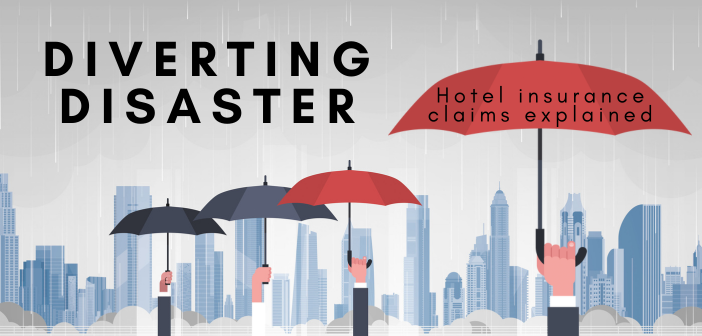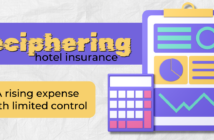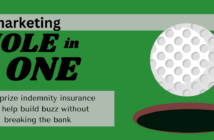Hotel insurance claims explained
When a natural disaster strikes, damage to hotels can be costly, not only to hoteliers, but the local economy, employees, travelers, and even families who hoped for a safe place to ride out the aftereffects of a storm. With many factors to consider following the stress of a disaster, it can be difficult for hotel owners to know what steps to take to get their business back up and running.
Here’s what hotel owners should know about the insurance claims process to ensure the best possible recovery for their hospitality business:
FIRST STEPS FOLLOWING A LOSS
The first steps a hotelier should take after their hotel is impacted by a natural disaster are to contact their insurance company to report the loss and secure the property to ensure guests, employees, or even trespassers will not be injured, and no further damage can occur. As soon as it is safe to do so, they should take pictures of the area, then cover damaged roofs with tarps and rope off areas where it may be unsafe to walk.
It’s also important to document these efforts – an insurance claim can be denied if mitigation is not attempted, so it is essential to provide proof that action was taken to prevent further issues.
Another step hoteliers should consider taking as early as possible is assembling a team of experts, including public adjusters, building estimators, contents inventory specialists, engineers or architects, mitigation and restoration companies, and municipal building codes officers, in addition to the insurance carrier’s adjusters. When these parties work in tandem, the process is more likely to progress smoothly. The first priority for this team and the owners is to establish the possibility of keeping the hotel open post-disaster, and the percentage of operations it can safely open to guests and employees.
THE INTRICACIES OF HOSPITALITY INSURANCE CLAIMS
If the hotel’s rooms or overall structure are damaged and guests are unable to safely occupy the space, decreased occupancy could translate to lost revenue depending on the hotel’s business interruption insurance policy. One important choice that hoteliers must make following a disaster is to decide whether it is best to shut down operations until restoration is complete or avoid more significant loss of income by remaining partially open. It has been our experience that even at a lower occupancy rate, the hotel can remain profitable and lessen the cashflow impact of having to completely shut down, however the short and long-term economic impacts need to be assessed before deciding. Policy conditions are an important part of that decision if you don’t have the right coverage to carry out your plans.
It is also important to consider additional costs that may become a factor. If a hotel is part of a franchise, there could be upgrades that need to be made to meet brand standards. In older buildings that must be brought up to code, there could be similar additional costs to consider based on local regulations.
 HOTELIERS’ RESPONSIBILITIES DURING THE INSURANCE CLAIMS PROCESS
HOTELIERS’ RESPONSIBILITIES DURING THE INSURANCE CLAIMS PROCESS
The insurance claims process can be difficult to understand, but most insurance providers work within a similar structure. Once the hotel owner reports a loss, the insurance company will acknowledge receipt of the claim and begin investigations. Next, the insurer will let the policyholder know what additional information may be required. Once it is provided, the insurer will accept or deny the claim – with reasoning provided should a claim be denied – or request more time to process the claim.
Typically, the claims process itself includes points of interest, such as both parties agreeing on the scope of the damage, preparing cost estimates, and then reaching an agreement on settlements.
Throughout the insurance claims process, the hotelier will be responsible for providing specific information and performing certain actions to ensure the claim is properly handled. It is the insured’s responsibility to:
- Notify the insurance carrier of the loss and allow access to the property.
- Take inventory of all property and present it to the carrier.
- Protect property from further damage.
- Present an itemized scope of damage to the structure.
- Present a signed and sworn proof of loss within 60 or 90 days, which will include factors such as the time and cause of the loss, building occupancy, insurance contracts, and the replacement cost or actual cash value (ACV) of each item – and the quantity of such items – from the building.
As a business owner, it is common to feel at a disadvantage in the claims process because you don’t have the same expertise as your insurance company’s adjusters. Indeed, inexperience submitting a property damage claim or not understanding your insurance policy can potentially complicate the claims process. Here are a few tips for protecting your own interests and reducing potential issues along the way:
1. TAKE YOUR TIME
Throughout the claims process, but especially at the beginning stages, don’t rush or dismiss the carrier’s requests for information. Having a cohesive and well-planned recovery strategy is key in getting the indemnity you need to stay open after the loss.
2. DOCUMENT EVERYTHING
Keep thorough records and save them in cloud storage accessible from multiple devices. Request everything in writing and add it to your digital folder.
3. MIND THE DETAILS
Understand your policy, including its sub-limits. This will help you determine whether mitigation or a complete rebuild is the better option – don’t waste money on attempting to store or clean property that is beyond repair. Rather, spend the time to document and proof the damages and get expert reports on expensive items beyond repair, such as electronic equipment, laundry or kitchen equipment, and key card/security equipment.
4. BE A STUDENT
Research options thoroughly and understand what your insurance will cover before hiring a contractor. If the rebuilding cost ends up being greater than what you’re entitled to under your insurance policy, you’ll be responsible for the bill.
5. SEEK OUTSIDE ADVICE
For additional help navigating a claim, negotiating with the insurance company, or even just understanding your policy, a public adjuster can be hugely beneficial. They work for the policyholder, not the insurance company, to help them receive a proper settlement.
Following a loss, managing an insurance claim can be overwhelming, but hoteliers don’t have to navigate the process blindly. With proper education and a team of experts on your side, your hotel can recover and resume operations promptly.
is the principal and executive general adjuster for Jansen/Adjusters International. Luis handles between $500 million and $1 billion in losses annually and has more than 30 years of experience with adjusting complex claims. For more info, visit jansenai.com.


 Luis R. Esteves
Luis R. Esteves

